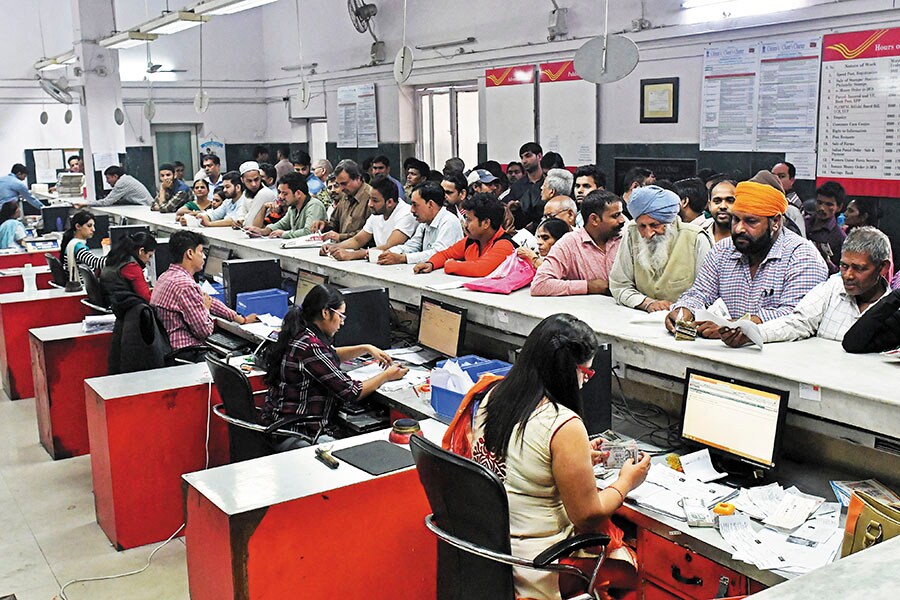
FM keeps ship on course, avoids sudden policy changes: Ashok Wadhwa
Budget delivers progressive changes without upsetting the cart and reinforces Centre's commitment to previous policy decisions
In the backdrop of the unprecedented effort to curb the size of the black economy in India three months ago, the Union Budget delivered a credible holding operation. With the government and private sectors still coping with the change, the budget reinforced the government’s commitment to its previous policy decisions while avoiding sudden changes.
On the foreign investments front, the finance minister (FM) announced the scrapping of the Foreign Investment Promotion Board, which is likely to help liberalise foreign inflows into India. Secondly, the FM decided to exempt the Foreign Portfolio Investor Category I & II from indirect transfer provisions. Furthermore, he clarified that the indirect transfer provision shall not apply in case of redemption of shares or interests outside India as a result of redemption or sale of investment in India, which is taxable in India. Unlike the Budget of FY13, which sparked the General Anti-Avoidance Rule controversy, the current budget steered clear of announcing retrograde anti-capital market measures.
On the structural change front, the budget reinforced the government’s resolve to crack down on the black economy with two policy measures. First, it decided to accept the recommendation made by the Special Investigation Team on black money that no transaction above Rs 3 lakh should be permitted in cash. Second, the budget made the point that the government is considering a new law to confiscate the domestic assets of economic offenders who flee the country until they submit to the jurisdiction of the appropriate legal forum. Such a law should give teeth to the Bankruptcy Code that was approved by Parliament last year.
Another progressive change that the Budget administered was that it brought down the Capital Gains Tax (CGT) period on immovable property from three to two years, and allowed sellers to invest the sale proceeds in financial assets whilst maintaining CGT exemption.
Historically, proceeds from selling property had to be re-invested in property to avail CGT exemption. This move, too, is likely to solve India’s problem of physical savings being too high and financial savings being too low.
Even on the fiscal deficit front, given the pressures on growth that are likely to come to the fore as the year progresses, the government’s decision to delay hitting the 3 percent of GDP fiscal deficit ratio is justifiable. The fact that they decided to withhold implementation of Universal Basic Income deserves to be commended. While the concept is perfect in theory, withholding its implementation makes a great deal of sense, given that phasing out benefits and subsidies in India is fraught with political risks.

Image: Anindito Mukherjee / Bloomberg Via Getty Images
Reduction of corporate tax to 25 percent for enterprises that have a turnover of less than Rs 50 crore in 2015-16 is a very smart way of keeping last year’s promise for 96 percent of corporate tax payers, and yet saving Rs 80,000 crore in tax loss that the government would have incurred if the tax rate was reduced for all corporate tax payers. Unfortunately, the effect of long-term capital gains where Securities Transaction Tax is not paid at ‘the time’ of acquisition will be harsh on promoters and employee stock option plan holders.
For the first time a government has addressed one of the root causes of black money, i.e. political funding. The mechanism of bearer bonds to be issued by the Reserve Bank of India (RBI), which can be encashed only in the registered accounts of political parties, effectively means accountability without disclosing the identity of the donor, other than to the regulator.
However, it is worth highlighting three areas where the budget could have delivered with greater force to make it an ideal one.
First, while GDP growth is likely to recover in FY18, it will be lower than what it would have been if the government was not forcing the economy to formalise so rapidly. The increased focus on tax compliance is likely to mean that the non-tax paying informal sector in India will shrink fast. This, in turn, will entail a degree of demand destruction, because the informal sector accounts for more than 40 percent of India’s GDP and employs close to 75 percent of the labour force. The government could have used the budget to make analysts revisit their GDP growth estimates for FY18. Given the importance of the result initiated by the government, this could have been clearly justified.
Secondly, the Indian banking system, which is the backbone of the economy, is reeling under asset quality stress. They are struggling with a corporate asset quality cycle that is yet to bottom out. Given that the government’s hands are tied with respect to funding recapitalisation, the announcement of a bad bank or banking sector reforms could have helped resolve the situation.
Thirdly, even as the FM highlights his intention to implement the Goods and Services Tax (GST) by July 1, the government did not tweak its indirect tax structure to prepare for GST implementation. Furthermore, there was no mention of the GST implementation date in the budget speech. A mention of this date would have helped create credibility around the government’s resolve.
Thus, against the backdrop of the uncertainty and potentially difficult global environment, the helmsman of the Indian ship did a credible job to ensure that economy stays steady. Whilst the budget did not deliver a clear focus on boosting growth potential over the next 12 months, it steered clear of announcing retrograde anti-rich measures and created a much required sense of policy stability.
The writer is Group CEO, Ambit Pvt Ltd. Views expressed are personal.




